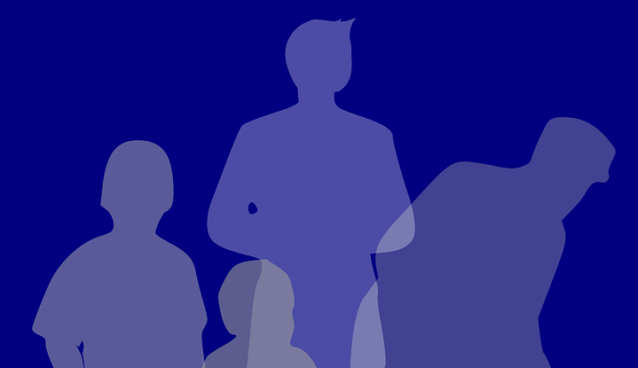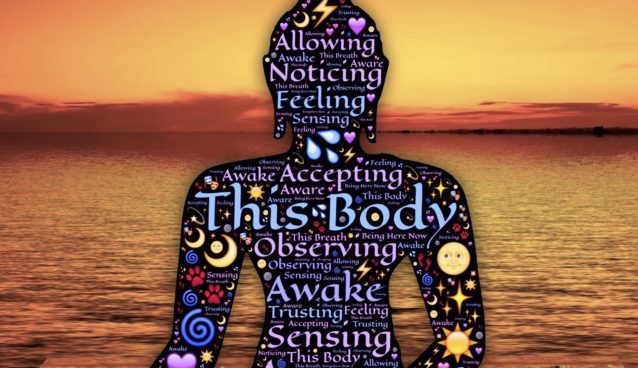Adolescence

Table of Contents
Introduction
The growth and development of children from infancy to maturity is divided by Psychologists into Infancy, Childhood(3 – 12 years) and Adolescence – starting from 13th year to 19 years or in strict sense from the onset of puberty till the attainment of maturity periods of adolescence extends. Adolescence is the most important period in the growth and development of children. In this period, great changes occur in all dimensions of the individual.
Adolescence
As children in adolescence become capable of more physical and mental abilities, they feel some needs – need for freedom, need for social life, need for satisfaction of sex related curiosities and so on. The healthy physical and mental development of adolescence largely depends upon the proper satisfaction of these needs.
The report of Hadow Committee describes the unique nature in this way – “There is a tide which begins to raise in the veins of youths at the age of eleven or twelve, it is called by the name of Adolescence. If that tide can be taken at the flood and a new voyage begun in the strength and along the flow of its current, we think that it will move on to fortune”.
Development in Adolescence Period
- Physical Development
- Extreme Cognitive Development like –
- Cognitive Development
- Abstract Thinking
- Scientific Thinking
- Logical Thinking
- Idealistic Thinking
- Deductive Thinking
3. True Morality like –
- Rational Outlook
- Does what is right regardless of legal restriction and opinion of others.
4. Heightened Emotion
Needs of Adolescents
There have been a lot studies till today regarding the special needs of the children in their adolescence. In order to understand the true nature of needs, we have to consider adolescence as an inseparable stage of human development.
Adolescence has also some natural and spontaneous needs of its own. But the diversity and integrity of these needs are so immense that a single need hardly expresses itself separately instead several needs merge together to make a complex form.
Regarding the needs of the children in adolescence, Harold W. Bernard said –
“Adolescence has basic, organic, psychological and social needs as do persons of other age, for example, the need for security, the need to love and be loved, the need for new experiences and the need for independence. Adolescence, however, is merely one phase of the continuous process of growth and development. The point to be appreciated is that the adolescents’ needs if not unique to adolescent phase, development are felt somewhat more poignantly than at other ages”.
From the above point of view, the most common needs which emerge in the minds of adolescents are :-
- Need for Independence : With the growing physical and mental development, an adolescent wants to express his opinion independently, to take part in different social activities and to become self-dependent like any adult member of the society. On attaining adolescence, the child who earlier used to depend on his elders, finds himself full of life and energy and cannot want help to take part in the diverse activities of the society. Thus, he defies the dominance of his elders and wants to proceed in life independently.
- Need for Self-Recognition : The adolescents not only want to take part in different social activities but also want self-recognition. They want to attract attention of other people by showing their abilities. The children in adolescence want to project themselves before the society in such a way so that people can appreciate their qualities and give them due respect and recognition.
- Need for Self-Expression : There is a great desire among the children of adolescence to express their feelings, thoughts and ideas. At this age every child wants to express himself in his area of proficiency like dance, sports, dramatics, music, literature, art or any other medium.
- Need for Social Life : One of the important needs of adolescents is to take part in the greater social environment. As they attain adolescence, children want to experience the greater social life and want to get involved closely in different social activities and thus involves in the activities of different social institutions like club, social welfare committees, community services etc.
- Need for Self-Reliance : Another important need of children in adolescence is the need for self-reliance. There is great desire among children of this age to become self-reliant as soon as they attain puberty. They start dreaming about their future professions and the ways to establish themselves in their fields. The children of this age are also very eager to acquire professional qualifications according to their choice.
- Need to Satisfy Sex-Related Curiosity : As the children attain puberty, they develop a deep sex-related curiosity. This curiosity greatly perturbs them as the result of natural outcome of their sexual development. First, they try to satisfy this curiosity by natural means. But later, by being ignored or rebuked by elders, they try to satisfy curiosity through abnormal ways.
- Need for Philosophy of Life, Morality and Need to Know the Unknown : The Children in adolescence wan t to have a philosophy of life, clear concept of morality and want to know all the things which are unknown to them. They have a lot of inquiries regarding the basic purpose of life. When the children attain puberty they also indulge in a great deal of thinking over the concept of right and wrong, good and bad. They want to evaluate all the activities of themselves and people around them in accordance with the concept of right and wrong. And if they do something wrong they go through terrible mental agony. At adolescence, there is also a great desire among the children to know what is unknown to them. The new discoveries of science have a great influence on the minds of adolescents.


Problems of Adolescence Period
Adolescence is one of the important stages of growth and development of the child. At this stage an unique disturbances develops in the mind of the child. According to modern psychologists, these disturbances in the mind of the child is not an essential outcome of his physical development, rather it occurs in the mind of adolescents because of unfavourable environment. As a result of various environmental conditions, a number of problems arises in the mind of adolescents. At this age several needs are develops in the mind of the child.
There arises a feeling of dissatisfaction and nonfulfillment of in his mind which he is unable to define. As a result, he becomes highly sentimental and moody. He feels that he/she is unable to cope with the environment. Out of despair of this imaginary failure, a feeling of inferiority grows within him/her. At this time the child craves for self-recognition from elders. But due to lack of attention from the elders he/she feels neglected and rejected. And in this way, he he/she develops a rebellions attitude towards the whole world. Adolescents develops different patterns of behaviour when they fail to cope with the environment.
Some of the problematic behavioural pattern exhibited by the children of this age includes Negativism, Persecution, Mentality, Aggressiveness, Truancy, Day-dreaming, Sex-offences etc.
- Negativism : The need for independence and self-reliance becomes very intense in adolescents. With the improvements of mental abilities, they feel at par with the adults. They develop rebellions attitude towards all existing systems and conventions. Under the influence of this rebellions attitude, they often disobey the teachers and disturb the discipline of the school. This type of behaviour is called Negativism . Discipline of the classroom and school gets highly disturbed because of this type of behaviour of the children. Such arrogant and rebellion behaviour causes great concern of the teacher and the school.
- Persecution Mentality : At the onset of puberty, children experiences some sort of mental discomfort. They become highly self-concious due to rapid physical and psychological changes in them. On one hand they want social recognition, at the same time, they get afraid of being rebuked for exposure of their secret desires. While they desperately want to become successful in life, they are skeptical about their own abilities. With these complex mental conditions, adolescents often exhibit persecution mentality towards themselves or others. When the adolescents feel ignored and neglected by the teachers, their sensitive minds develop a sense of self-pity which impels them to undergo needless self-denial or makes them harass their classmates who are comparatively docile.
- Aggressiveness : As during adolescence, children experience less disciplinary restrictions than that of childhood, some of them enjoy some freedom of movement while some feel insecure. This feeling of insecurity increases when they feel ignored and neglected by the parents or the teachers. Due to the feeling of insecurity, two types of reactions are found in the behaviour of the adolescents. One type of reaction is expressed through aggressive behaviour while in other case the adolescents avoid completely the company of their classmates and become totally self-centered and unsocial. In the case of aggressive behaviour, the adolescents indulge in fighting with their classmates or cause damage to the furniture of the school. Through these types of aggressive and destructive activities they try to get recognition from the teacher and their classmates.
- Truancy : The diverse needs of the adolescents are not satisfied through uninteresting bookish education of the school. Thus the atmosphere of the school becomes unattractive and monotonous to them and they often run away from the school whenever they get an opportunity. This type of problematic behaviour of the adolescents causes severe hindrance to the maintenance of the discipline in the school.
- Day-Dreaming : When the adolescents fail to cope with the environment of the school, they indulge in day dreaming or absurd imagination to get rid of the anguish of this failure. When day-dreaming intensifies. the adolescents become disinterested in the reality and it becomes very difficult for the teacher to manage them.
- Sex-Offences : The most problematic behaviour of the adolescents are sex offences. When the sex related curiosities of the adolescents are not satisfied through natural ways, they try to satisfy this curiosity through abnormal and unconventional ways. The most sex offences of the adolescents in the school are indulging in indecent behaviour towards the classmates, writing obscene words or drawing vulgar pictures at different places, regarding pornographic literature etc.
Role of Educational Institution
As the period of Adolescence is the most critical period of an individual’s life. The healthy physical and mental developments of adolescence largely depends upon the proper satisfaction of needs and providing proper direction to fulfill these needs.
Role of educational institutions and teacher plays a pivotal role regarding this. Some of them are-
- Knowledge of Psychology of Adolescence : It is very essential for the teacher to understand the psychology of adolescents and about their specific needs. The teacher has to know the various types of changes they undergo. The teacher has a great responsibility to know and understand their needs, interests, desires, aptitudes, abilities etc., and the various kinds of problems they face and how to fulfill their needs to avoid arising of problems.
- Provision for Democratic Atmosphere : The school has a great responsibility to provide democratic atmosphere. The school should provide ample of opportunities for expression, leadership training.
- Rendering Proper Health Education and Sex Education : The school should make appropriate arrangements for proper lectures and scientific explanation of the sudden growth in various bodily parts, information regarding balanced diets, personal hygiene and cleanliness etc. Sex education should be given in free frank. scientifically, judiciously and impersonal manner.
- Training of Emotions : The school should impart the training to emotions, conduct different activities so that adolescent’s emotional energies are diverted towards creative and constructive goals.
- Training in the Art of Living Together : School should impart training in the art of living together by –
- Group Activities
- Community Services
- Social Services
- NCC and Scouting & Guiding
6. Providing Moral and Religious Education : School should impart moral and religious education to propagate the spirit of brotherhood, humanitarianism.
7. Conducting Physical Education, Games and Sports : Adolescents with full energy should be given proper physical education. Organisation of games and sports will sublimate their energy and will divert towards constructive goals.
8. Nurturing the Talent : To nurture the talents among adolescents, school should do the following –
- Providing good libraries
- Organisation of group discussion, debates, seminars
- Organisation of quiz programmes, extempore.
9. Nurturing Creativity : To lead out creativity of adolescents, school should conduct the following –
- Poem writing competition
- Compose song
- Exhibitions
- Drawing competitions
10. Provision of Guidance and Counselling : School should make necessary arrangements for guidance centres so that adolescents may get suitable educational, vocational and psychological guidance.
11. Tasks of Responsibilities : School should introduce –
- Self-Government
- Academic Club
- Science Club
12. Organisation of Cultural Programmes : Cultural programmes like singing, dancing, acting will develop cultural, emotional, artistic and aesthetic development among students.
Role of Teacher
In addition to role of school as a whole, role of teacher is also very important for implementation of school’s programmes as well as individual attention to adolescents.
- Be sympathetic and Practice Friendly Attitude : The teacher should be sympathetic and practice friendly attitudes towards students. Teacher should take care of proper fulfillment of their needs and emotions.
- Importance to Individual Difference : The teacher should recognise and respect the individual differences or individualities of adolescents. Teacher should recognise the needs, desires, tastes, interests, abilities, capacities, aptitudes of every students and treat them accordingly.
- Using Proper Method of Teaching : There is a great desire among adolescents to know what is unknown. They have lot of enquiries about everything. They have deep urge to explore and discover. The teacher should employ –
- Heuristic Method of Teaching
- Project Work and Problem-Solving Method
- Discovery Method
- Role Playing Method of Instruction.
4. Effective Class Room Management : By effective class room management, the personality of teacher greatly influences the personality of students. Teacher should –
- Encourage students to participate in learning.
- Avoid confrontation with students
- Be impartial and practice fairness
- Showing humor
- Call each students by their name.
Conclusion
We can conclude that if the various needs of the adolescents can be duly satisfied by education imparted in the schools that will definitely help them in the proper development of their personality and character. The period of ‘Storm & Stress’ will become period of ‘Sunshine & Shower’.



